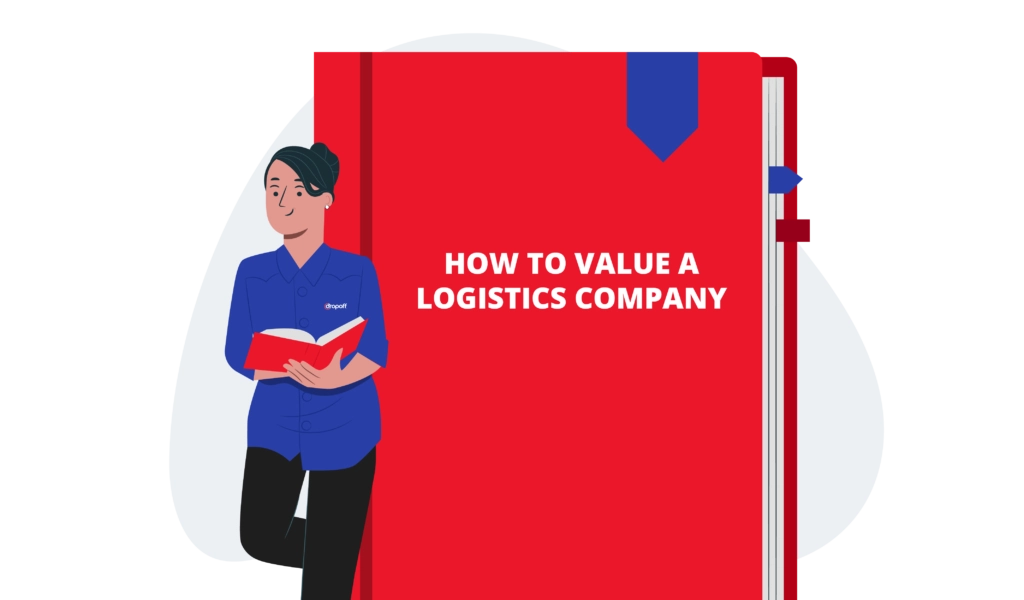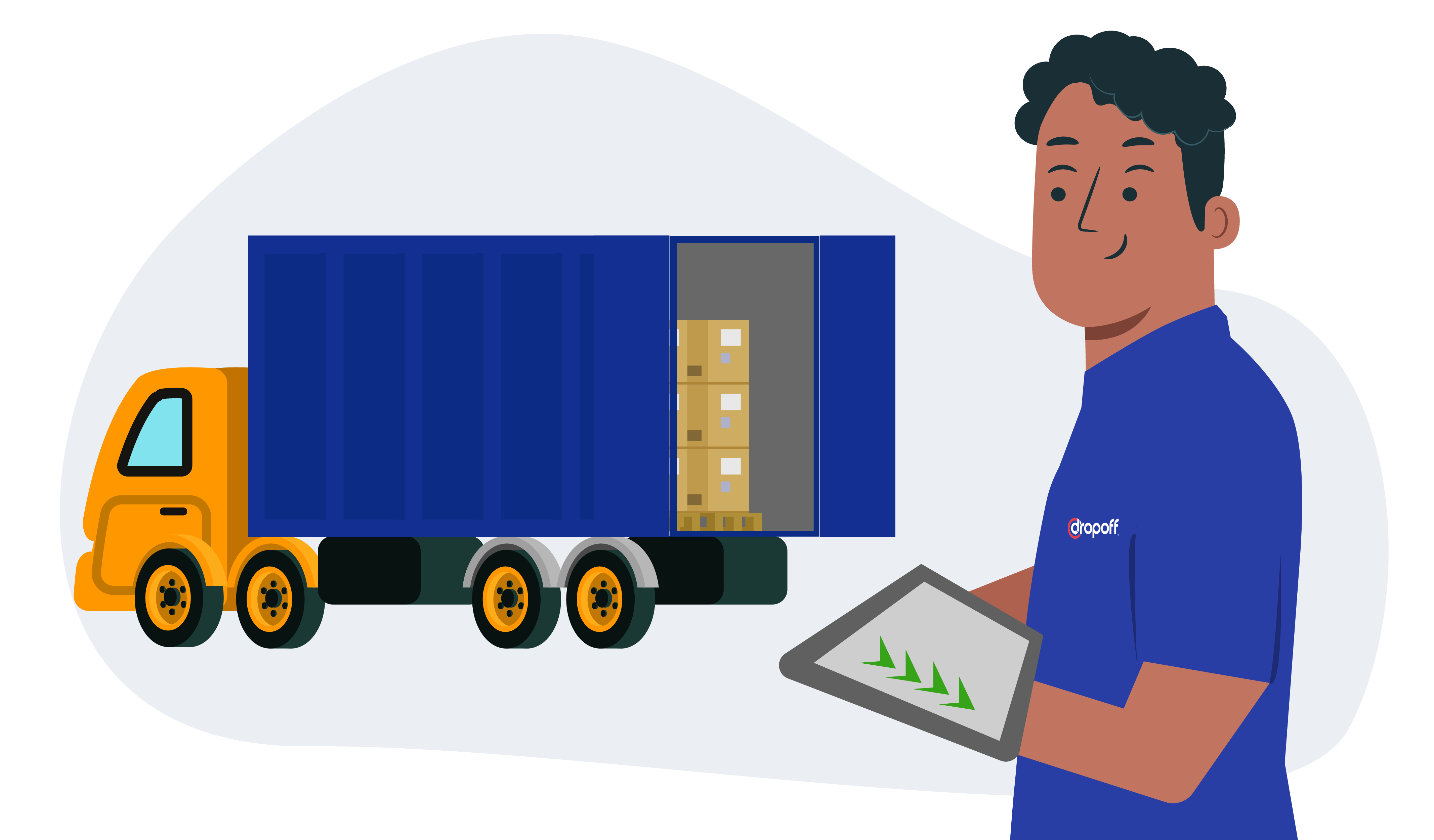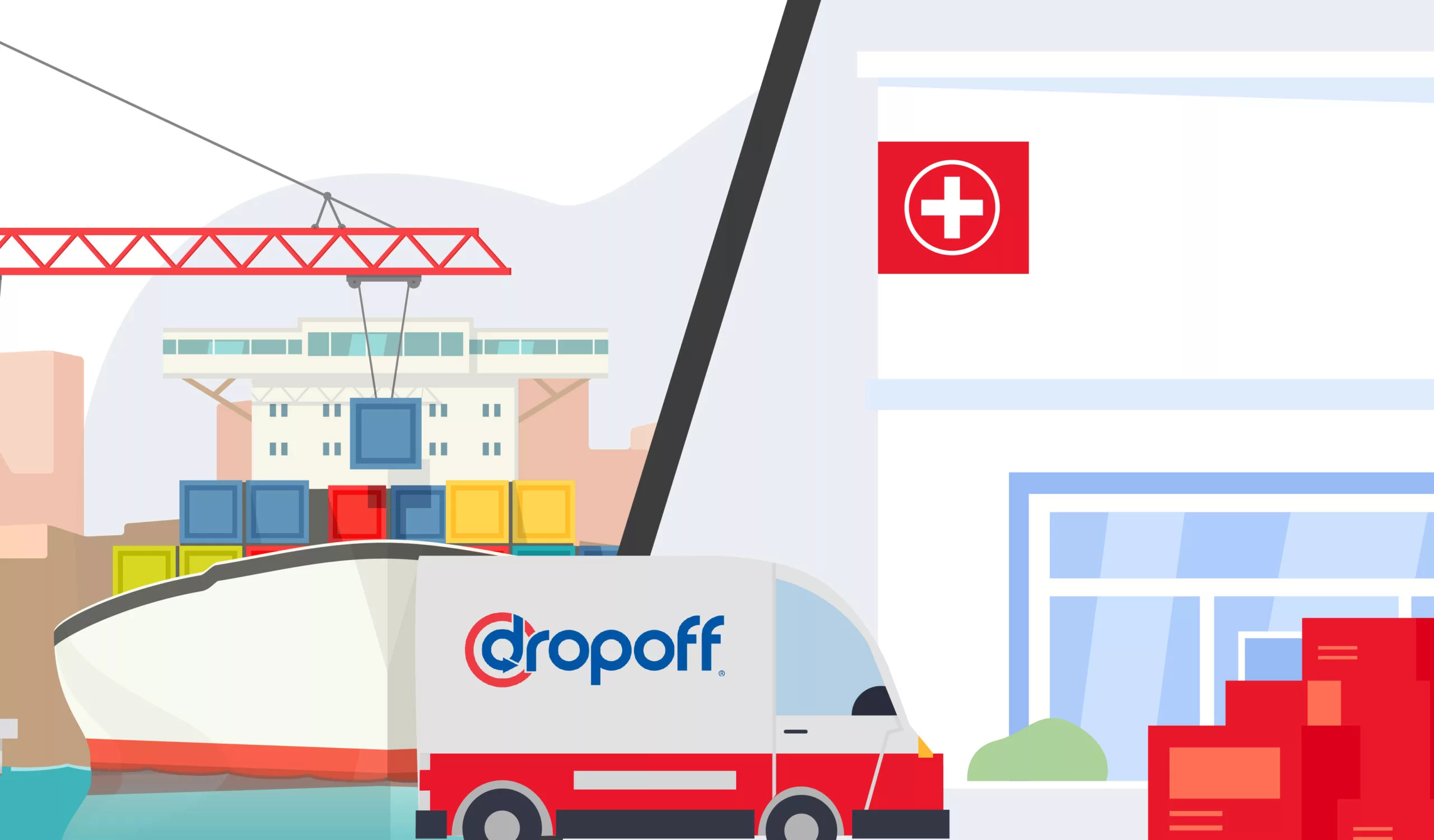Ultimate Guide to Valuation of Logistics Companies

Logistics is a big part of the global economy, and determining the value of small courier businesses is becoming even more important. In this guide, we’ll talk about estimating the value of your logistics company.
An Overview of the Last-Mile Delivery Market
As of last year, the global last-mile delivery market was valued at USD 40.5 billion and is expected to rake in USD 123.7 billion by 2030.
This growth is driven by a few things, like the rise of online shopping, the growing popularity of same-day and next-day delivery services, and the use of technology to improve last-mile logistics.
Knowing the Worth of Your Courier Business Is Vital
It’s essential to know the value of your business. Many things affect this value, including the company’s size, profitability, and growth potential. By knowing all this information, you’ll be in a better position to negotiate a fair price when the time comes to sell.
5 Things You Need to Consider During a Small Courier Business Valuation

Here are five things to keep in mind when estimating the value of your courier business.
1. Additional Supply Chain Services
Logistics companies are always coming up with new services to help their customers manage their supply chains. These services make them more valuable to customers and buyers. Companies that offer a complete package of services get paid more than companies that don’t offer these things.
2. Technology and Equipment
Your courier business should have up-to-date systems and software. Nowadays, customers expect the royal treatment when it comes to deliveries. Offering additional features like real-time tracking, helps your business receive higher valuations.
3. Improvements
Regular analysis of strong and weak points helps a logistics company stay profitable. Companies that show effective improvement cycles will look more valuable to buyers.
4. Management Team
When a company heavily relies on its owner, it shows. For instance, the company doesn’t have set standards or training procedures, or it doesn’t even have a management team.
Another example is if the owner is very involved in key customer relationships. This will be an issue when the owner leaves because the rest of the company team isn’t sure how to run the business in their absence.
Plus, a lack of management, in general, creates a lot of potential risks in the business.
5. Customer Concentration
Having only a few key customers lowers any company’s value. Because if those customers leave, the company might go out of business. If a key customer makes up 10 to 30 percent of sales, a buyer will see a lot of potential risks.
A diversified customer portfolio means your business is healthy & shows little risk to a buyer.
NEWS: Dropoff ranks no. 2607 on the 2022 Inc. 5000 List.
The Valuation Process

There are eight essential steps to the small business valuation process.
1. Determine Why the Valuation Is Necessary
Every company is different, and so are its values. That’s why it’s good to have a business appraiser who knows about this stuff. They’ll help find a value that’s both accurate and fair.
2. Determine the Basis of Value
There are different types of values measured in a transaction. The value could be the price between the seller and buyer or the investment value to the current owner. The basis for this value is often set by regulation, law, or contract.
3. Determine the Premise of Value
In an M&A transaction, the buyer might see benefits that make the acquired business more valuable than the fair market value. This will make the premise of value higher.
4. Gather Relevant Information
You’ll need to look at your financial records, contracts, customer/supplier agreements, leases, loans, and all other obligations that affect the future profitability of your business.
5. Research the Company’s Past Performance
Learn about your company’s history, structure, and past financial performance. Then, compare it to other courier companies with similar size and maturity. Note the companies’ price-to-earnings ratios, price-to-book values, and price-to-free cash flow metrics.
6. Determine the Future Outlook for the Business
Buyers always look at how much money your business will make in the future. They look at how well the company is doing now and project how it will do in the future. After you figure out all the numbers, you’ll be able to put a price on your business.
7. Choose a Valuation Approach
There are three common ways to value a business: the market approach, the income approach, and the cost approach.
The market approach uses recent sales of similar businesses as a guide. The income approach looks at how much money the company will make in the future. The cost approach looks at how much it would cost to create a new business just like the one you want to value.
Often more than one approach is used to get an accurate value for a business. The values from each approach are averaged together to come up with a final value.
8. Determine What the Value Is
The final step is to reach a value. You can get an appraiser to do this, who will create a detailed report. Use this report to help defend the value of your courier business.
“I always recommend seeking more information on the valuation process from investment bankers and specialized transportation brokers. These highly technical experts can help you estimate the value of your logistics business.”
Jason Burns, Director of Corporate Development
What Are the Typical Valuation Multiples for the Logistics Industry?
There are two types of valuation multiples:
- Equity Multiples
- Enterprise Value Multiples
Today, we’re focusing on Enterprise Value Multiples.
Equity Multiples only tell you a little about a company’s value and what it’s worth in the future. Enterprise Value Multiples are more accurate and often used by companies that want to sell, merge, or be acquired. Why? Because Enterprise Value Multiples consider the effect of debt financing on the final calculation.
The four most common ways to calculate a company’s value are EV/Revenue, EV/EBITDAR, EV/EBITDA, and EV/Invested Capital. Let’s take a closer look at EV/EBITDA, also known as “earnings before interest, taxes, depreciation, and amortization.”
Remember the three different approaches to value a business we mentioned above? You can use EBITDA to value your company using those methods. Calculate each one and compare the results.
How to Calculate EBITDA
There are two ways to calculate EBITDA:
- The first way is to add the income from operations, depreciation, and amortization.
- The second way is to add the taxes, interest expense, depreciation, and amortization.
So what’s the main benefit of using this method to determine the business value of your logistics company?
Many business owners prefer this business valuation method because it helps them see how profitable their companies are.
How to Increase the Valuation of Your Logistics Business

Let’s look at how to increase the value of your logistics company.
1. Increase Your Company’s Cash Flow
A positive cash flow is one of the main things that’ll attract investors to your logistics company.
Here are a few ways to increase your company’s cash flow:
- Send invoices to customers quickly
- Increase your service prices
- Cut your business’s expenses
2. Improve Your Company’s Brand
Branding your logistics business is another way to increase its value. But don’t make the mistake of just coming up with a cool logo. Think about your tone and messaging. You need to know how your customers associate with your company and then push those feelings through all communications.
When people see that you’re a reliable brand, they know exactly what to expect from your courier business. You’re also more likely to be recognized as experts in your specific niche (leading to more sales opportunities).
How Dropoff Can Help Value Your Courier Business

Estimating the value of your small courier service business doesn’t have to be hard. Just keep these key factors in mind, and you’ll be on your way to getting the best possible price.
Here at Dropoff, we’re always looking for new opportunities to expand our business. One way we do this is by acquiring small local courier companies. Check out how we acquired Rightaway Delivery, Inc. after 23 years of success in Michigan.
If you’re a small logistics business owner, we encourage you to get in touch with Jason Burns, our Director of Corporate Development. He would be more than happy to discuss the possibility of acquiring your business.
FAQs on Small Courier Business Valuation
1. What makes a logistics company business worth more?
Some aspects that make your logistics company business worth more are the number of employees, long-distance jobs, and growth potential.
Here are some metrics that help improve the value of your business:
- Predictable key drivers of new sales
- Stable or growing traffic from different sources
- Established suppliers of inventory with backup suppliers
- Volume statistics
- A high percentage of repeat visitors and sales
- Clean legal record
- Brand with trademark
- Documented processes
2. What does the average logistics company business sell for?
Since 2005, 357 logistics companies have been bought in the United States. Most of these deals have been large ones. The total value of all these deals is almost $300 million. The average asking price is almost three times higher than the average gross income, and the average sales price is pretty high, too: $836k.
3. What do you need to consider during a small courier business valuation?
Five things to consider during the valuation process of your logistics company:
- Additional supply chain services
- Technology and equipment
- Improvements
- Management team
- Customer concentration
4. How to valuate a small courier business?
There are eight essential steps on how to value a logistics company:
- Determine why the valuation is necessary
- Determine the basis of value
- Determine the premise of value
- Gather relevant information
- Research the company’s past performance
- Determine the future outlook for the business
- Choose a valuation approach
- Determine what the value is
5. How long will it take to sell your logistics business?
Selling a business isn’t an easy process. It takes months to find the right buyer. Most deals are closed within 9 to 12 months, but some are closed in as little as 3 to 6 months.






